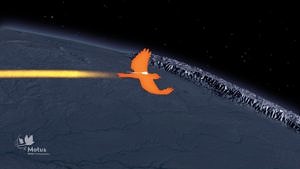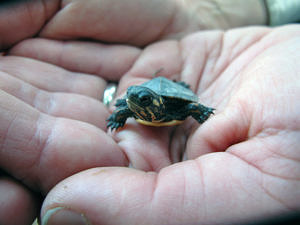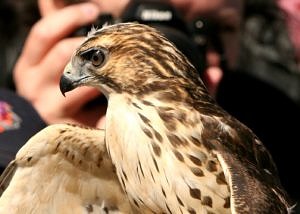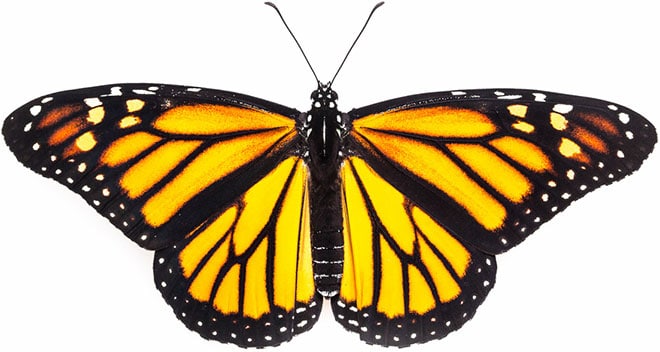As we celebrate our 50th Anniversary Year, the Harris Center is launching a new 50th Anniversary Fund to help us face the environmental needs and challenges of a changing world. This fund will seed innovative education and conservation research projects for years to come, as well as provide for stewardship of the land and trails in our 24,000-acre SuperSanctuary. Four initial projects have already received funding:
Cutting-Edge Migration Research

Learn more about the Motus network in this short video.
The Motus Wildlife Tracking System — named after the Latin word for movement — is a cutting-edge network of radio transmitters (nanotags) and receiving stations that enable biologists to track the migration patterns of small flying animals like songbirds, bats, and even butterflies. We’ve been keeping our eye on this technology for several years, and are excited to become part of the Motus network! With support from the 50th Anniversary Fund, we plan to install a Motus receiving station on Harris Center-conserved land in Stoddard in the coming year. Migration data will be collected whenever tagged birds, bats, or insects fly within range of our station, which will be one of 50 installed throughout New England in collaboration with NHFG, NH Audubon, and a host of other conservation partners. As such, it will contribute to an exciting international migration dataset, while also providing opportunities for local education focused on the science and mystery of migration.
Headstarting Turtles with High School Students

A painted turtle hatchling. (photo © Brett Amy Thelen)
In the 2020-2021 school year, the Harris Center will work with ConVal High School 10th grade honors biology students and teachers on a new turtle monitoring project, thanks to support from the 50th Fund. In partnership with the Army Corps of Engineers at MacDowell Dam and NHFG, the students will monitor a habitat restoration project on Army Corps land for turtle nests, and help pilot a headstarting program for turtle eggs and hatchlings. Headstarting is a conservation technique in which young animals are raised in captivity and released into the wild when they attain a certain age or size, making them less vulnerable to predation. In this case, the ConVal students will be rearing painted and snapping turtle hatchlings in their classroom and releasing them into the MacDowell Lake ecosystem. As NHFG begins to develop their own headstarting program for critically endangered turtle species, this project — focused on more common species — will help pave the way for future student involvement in turtle conservation.
A Perpetual Nature Calendar
Through photos and text, local birder and naturalist Francie Von Mertens tracks the seasons of the natural world, one day at a time. Her small, spiral-bound, 365-page perpetual nature calendar — published with support from the 50th Fund — will offer a year’s worth of daily insights into the wild world we share: plants and their pollinators, trees, fungi, birdsong, salamanders, porcupine courtship, and so much more. It will be available in early fall 2020.
Tracking Broad-Winged Hawks

A rehabilitated Broad-winged Hawk awaits release back to the wild. (photo © Ken Bergman)
In collaboration with Hawk Mountain Sanctuary in Pennsylvania, biologists will attach satellite transmitters to one or more Broad-winged Hawks found nesting on Harris Center lands in the summer of 2021 — the first time Broad-winged Hawks have been satellite-tagged anywhere in New England. The goal: to study the movement ecology of this iconic species, from their breeding sites in the Northeast to their wintering habitat in Central and South America. The data will shed new light on the lives of “our” hawks, and help determine habitat conservation priorities along their migration routes. It will also offer an incredible, accessible look at hawk migration for students and the general public.
Looking to the Future…
These are just the first of many projects the Harris Center hopes to support via the 50th Anniversary Fund, which will also be used to ensure careful long-term stewardship of our conserved lands and trails. We hope you’ll consider nurturing this important work here in the Monadnock Region, now and into the future, through a donation to the 50th Fund.

